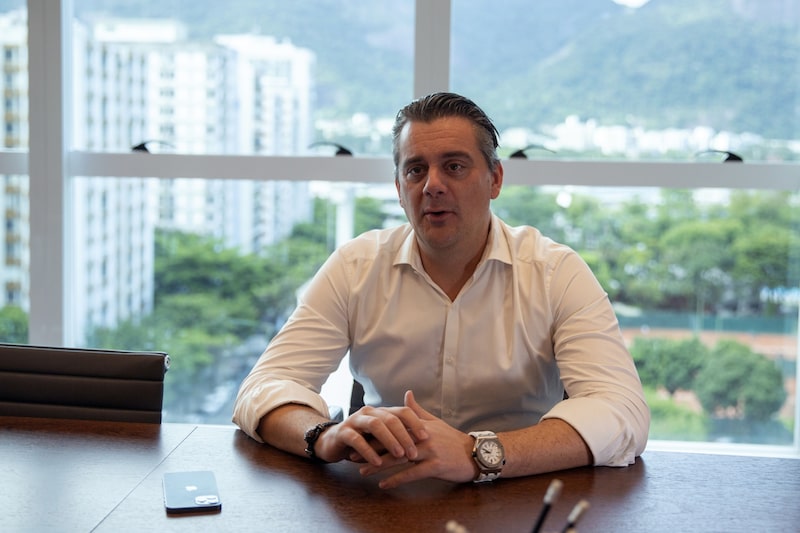Bloomberg — The meltdown of Eike Batista’s commodities empire gave Mubadala Capital the local knowledge to become a private equity standout in Brazil. Now it’s looking for more troubled assets in Latin America’s largest economy.
The investment arm of Abu Dhabi’s sovereign wealth fund — with about $5 billion of equity in Brazil including a refinery and three metro lines in Rio de Janeiro — has about another $3 billion earmarked for deals it’s working on, Oscar Fahlgren, the head of Mubadala Capital in the country, said in an interview.
It’s a remarkable turnaround from a $2 billion investment in Batista’s holding company that almost went up in smoke in 2013, when the bankrupt tycoon’s oil wells proved to be duds, triggering a three-year fight to successfully recover several assets from Batista, such as a stake in the company that owns Burger King and an office tower in Rio’s upscale Leblon area.
“We are a foreign investor that had a pretty rough experience getting in, and we’ve emerged as the best private equity manager in the country,” said Fahlgren, speaking from the tower in Leblon. “We saw an opportunity to build a business around a skillset that’s quite unique.”

A key moment for Mubadala was when a massive pay-to-play scandal known as Carwash sent Brazil’s business and political elite into an unprecedented crisis. Mubadala sprung into action to negotiate the purchase of a toll road in Sao Paulo state from an engineering conglomerate that was deeply embroiled in the corruption scheme, taking advantage of the expertise in Brazilian defaults and corporate restructurings it acquired during 11 debt-to-equity transactions with Batista.
The focus on distressed assets remains.
“We continue to focus on complexity, companies in Chapter 11, assets trapped with former Carwash companies,” Fahlgren said.
Unlike its parent Mubadala Investment Co., Mubadala Capital gets about two-thirds of its funding from outside investors, and the rest from the parent, said Fahlgren. The firm just closed its first $311 million Brazil-specific fund, and is currently raising for a larger second fund, he said.
In total, Mubadala Capital has $16 billion under management, and Brazil is one of its four main investment areas, along with global private equity, venture capital and a hedge fund.
Fahlgren, a lawyer trained at the University of Uppsala in Sweden, became Brazil head for Mubadala in 2010 after working as an associate director for private equity firm Terra Firma Capital Partners in London.
His latest move at Mubadala was the acquisition of a refinery in the northeastern state of Bahia from state-controlled oil giant Petroleo Brasileiro SA, which is shedding assets to reduce debt. It’s a bet on a competitive fuel market that has come under attack by consumers and politicians ahead of presidential elections next year.
“Political turmoil is part and parcel for the country, and it’s not going to stop,” he said. “When we see temporary dislocations in the market driven by an election, that’s an opportunity to invest in the long run because of reduced competition.”
Reducing the carbon footprint of the $1.8 billion Mataripe refinery is a top priority. While many investors are completely avoiding oil projects for environmental concerns, Mubadala sees an opportunity to cut the emissions from existing infrastructure that will be in operation for decades to come.
Mubadala is also looking into wind and solar parks in Bahia, one of Brazil’s sunniest and windiest states, to power the refinery with as much renewable energy as possible. It’s also looking at increasing biofuels production at the facility, and expanding pipelines to eliminate the carbon-intensive use of tank trucks for distribution. In total, Mubadala sees more than a billion dollars in potential upgrades.
“We can deploy our capital into a polluting asset and make it better,” Fahlgren said.

